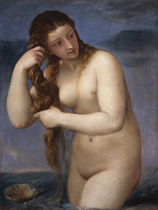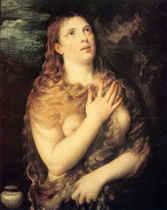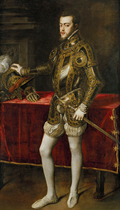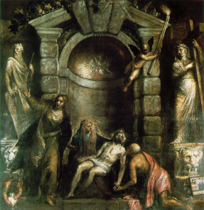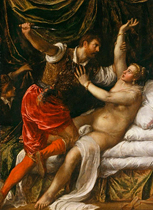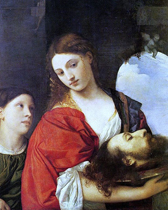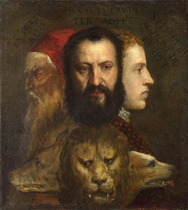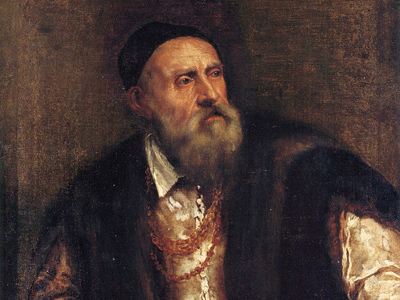
Painter - Titian
Tiziano Vecelli, or Titian as he is known as in English, was born sometime between 1488 and 1490 in the Republic of Venice. As a teenager he was apprenticed to Sebastiano Zuccato and went to work with other artists such as Bellini and Giorgione. who both had an influence on his art.
Titian became successful at a young age, and his 1518 altarpiece, Assumption of the Virgin, helped to establish him as a leading artist. His fame spread and Titian gained commissions from such people as the King of Spain and the Holy Roman Emperor, both of whom sat before him for portraits.
This picture, Philip II in Armour, was painted in 1551 when he and Titian were both in the German city of Augsberg
Aware of the dangerous political environment and the sensitivity of his subject, Titian abandoned this piece before it was finished
Nicodemus' beard outlined against Jesus' arm is reminiscent of a paintbrush, which is perhaps also intended by the artist
The woman in the painting can be seen in several of Titian's works including, Vanity, Flora, and Woman at the Mirror
In the background of the painting two maids can be seen rummaging through a chest in search of Venus's clothes - apparently more concerned for the goddess' modesty than she is herself!
The three men pictured are thought to be Titian himself, his son Orazio, and his cousin, Marco Vecellio. Each one represents a different stage of life - old age, the prime of manhood, and youth
Ready for more?
not all...
quizzers. Try to win a coveted spot on our Hall of Fame Page.





